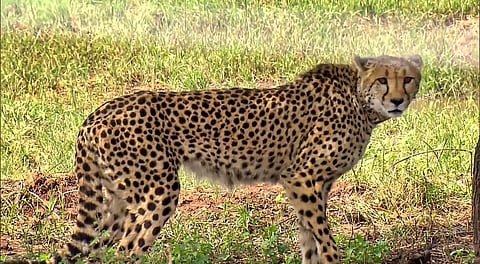

NEW DELHI: While India is celebrating the first kill of the two cheetahs brought from Namibia in September, who were released from quarantine earlier this week, negotiations are going on with South Africa for getting more such big cats in batches.
“Under the programme of bringing cheetahs to India, there is a need to add more numbers before they can be released in their natural habitat. Negotiations are going on with South Africa to get more cheetahs to India, to bring the total number to 50. It is a long process which takes time as cheetahs are considered the pride of nations they belong to and there is a lot of apprehensions expressed by the countries in sending away these animals. Whether the cheetahs will adapt and survive is their biggest concern,’’ said a person familiar with the process.
The Kuno National Park in Madhya Pradesh is home to leopards. The feline species are territorial and attack each other, and even though the cheetah is a swift animal it needs to be in reasonable numbers and acclimatised before being released into the wilderness. As of now, Kuno is proving to be a good habitat for them as it suits their climatic conditions.
“The two male cheetahs Freddy and Elton were released from quarantine on November 5 into an enclosure full of prey. The duo brought down a cheetal stag. This indicates that the cats are adapting to their new habitat. However, only after more cheetahs are added can we consider releasing them into the wild,’’ sources said, adding that it will take some time before they fully settle down.
Meanwhile, the female cheetah that suffered a miscarriage was pregnant on arrival, but the long travel and complete change of habitat didn’t keep her fit enough to deliver a baby. Of the eight cheetahs brought from Namibia, five are female, aged between 2 and 5 years, while three are males between 4.5 and 5.5 years of age. The next batch of cheetahs too will be around the same age.